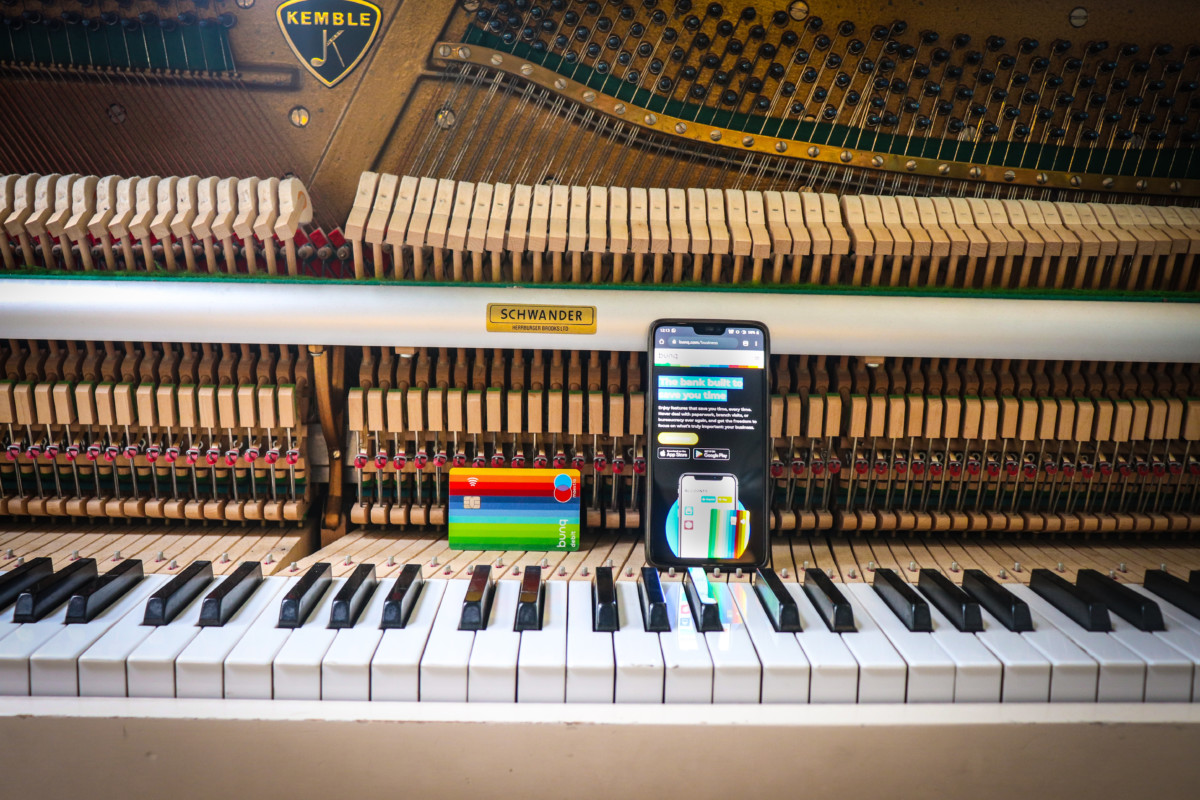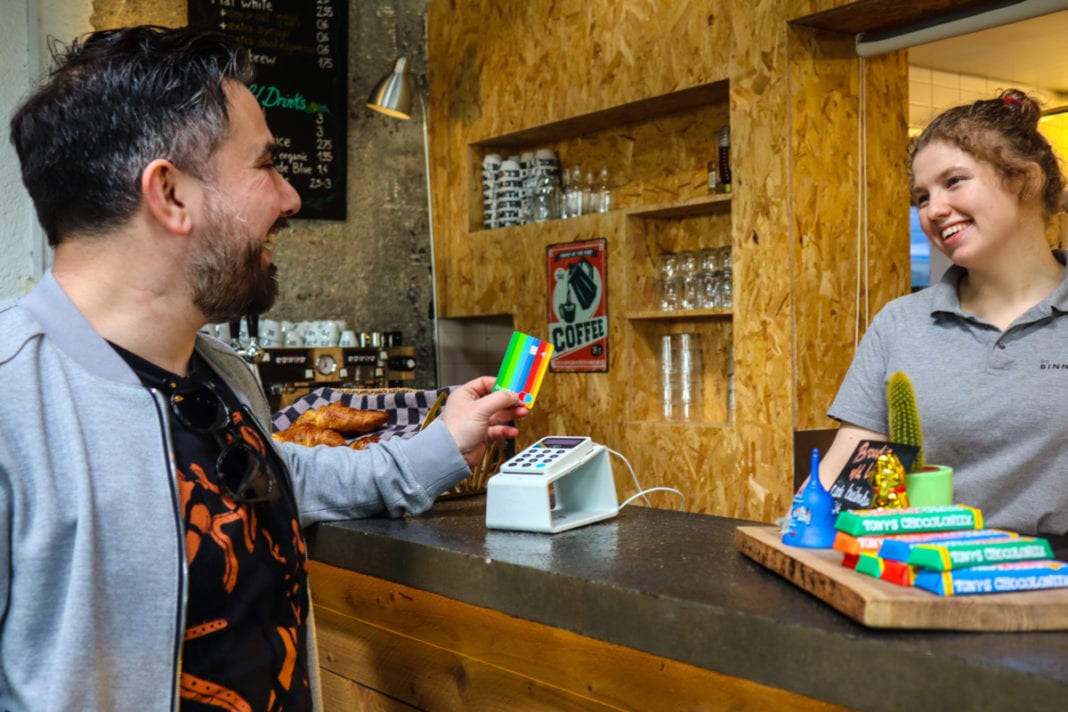You must have been living under a rock if you didn’t notice us talking about bunq as the go-to-bank for internationals in the Netherlands, but where did this innovative new financial player come from?
bunq is a revolutionary bank that disrupted the industry in 2012, and has been steadily growing since. In fact, it has doubled its user deposits from 2018 to 2019. We at DutchReview have been massive bunq fans for a while now, as you’ll have seen from our previous articles on them.
But we’ve never had the opportunity to sit down with someone who works at bunq, and ask them why they do things the way they do. bunq, after all, is not exactly your typical bank.
We had a chat with Oliver (Olly) Sinclair, who is bunq’s Recruitment and Employer Branding Specialist, to talk about what makes bunq different, and why it chooses to operate the way it does. For anyone who has been wanting to know more about bunq, or who just wants to hear about something different in the banking world, this article will do the trick.

| We’ve written lots about the different features bunq has (like Slice groups, Auto Save or automatically splitting your salary), as well as why they’re a particularly great option for expats and for freelancers. bunq’s features are awesome for travelling, and for internationals. |
bunq’s founding story: user-centred banking
bunq was founded in 2012 by CEO Ali Niknam, who wanted to do banking differently. In the wake of the 2008 crisis, where many people felt that the banks weren’t looking after them, bunq set out to do something completely different – put its users at the heart of everything it does. In 2014, bunq became the first bank in 35 years to get a European banking permit, which it acquired from the Dutch Central Bank.

In late 2015, it opened fully to customers in the Netherlands, and by 2019, it had expanded to the whole of Europe. Its approach has always been to centre the customer: a lot of bunq’s features and updates have been inspired by feedback from users. Every staff member, no matter what their usual role is, will spend a couple of hours a month working in the customer support team. That means that everyone working at bunq stays in touch with what it’s like to be a user, to ensure that the bank remains centred around the customer. The aim is to help customers feel like “their voice is being heard”. In fact, Olly says, “speaking out is what makes bunq the bank of The Free.”
How bunq was able to thrive during the corona crisis
Given that bunq rose from the ashes of the 2008 financial crisis, we wanted to ask Olly about how the bank was finding the current period of financial uncertainty as a result of the coronavirus crisis. Did banking differently actually turn out to be beneficial during this strange period in history? “The choices we’ve made have really helped us,” Olly says. “If you’re looking to attract millions of new users every month, that would require a different approach from ours: but we’re really happy with how things are going.”
At a time when a lot of businesses and people are struggling, bunq is doing really well. That’s partly down to the fact that it’s fully digital. In the corona times, many traditional banks had to close down branches or reduce their opening hours, which of course made it harder for their customers to bank as normal. The digital nature of bunq made it both a really attractive option to potential customers during these times, and also meant that it was fully prepared for our collective shift to doing everything more digitally. bunq is also bucking the trend that people don’t use challenger banks as their current accounts – 67% of bunq Premium accounts are major usage accounts and are consistently being used with deposits higher than €1,000.
How bunq hires the best people from all over the world
bunq hired 55 new staff members during the coronavirus crisis, and actually had their biggest hiring quarter ever. As a bank that prides itself on its multilingual customer service and all-round international vibes, it will probably come as no surprise to you that bunq has a really diverse team of people behind it.
A large part of that is down to the fact that bunq seeks out the best people for each role, and does whatever it needs to do to get them on its team. Olly, for example, is Australian, so needed a company to sponsor his visa— which bunq was happy to do. bunq also always invites its potential employees to its physical office, so that they can check if the bank and employee are a good fit. It’s also an opportunity for the potential employee to check if they feel at home there, Olly says: “it’s a two-way thing”.
| If bunq is sounding like the sort of place you’d like to work, then it’s worth mentioning that they currently have over 20 positions open on their website. |
bunq’s rainbow card: “in the end, we are all human”
In August last year, one of bunq’s customers was beaten up while on holidays in India, because his assailants thought that his use of the rainbow card meant that he was gay. When the news broke, CEO Ali Niknam revealed that he had gotten requests over the years to “make the card less gay”. This is absolutely not something bunq is planning on doing, Niknam says. “As if being gay would be somehow bad. Black, white, yellow, purple, gay, straight, bi: in the end we are all human. ” According to Niknam, the colours represent “the happiness and pleasure that people associate with seeing the rainbow”.
How sustainability works for bunq
In our previous articles about bunq, their focus on sustainability has been something we’ve been delighted to highlight for you. bunq used to offer its customers a Metal Card: a stainless steel bank card which allows you to plant a tree for every €100 you spend. The Metal Card is much more durable than the plastic one, so much better for the planet too! bunq has now extended this subscription to anyone who wants it, regardless of whether they have the (very aesthetic) Metal Card.
Now that we had the chance to sit down with Olly, we wanted to ask why bunq had chosen to focus on sustainability. “Sustainability is the future,” Olly says. “It’s not a money-making solution, it’s a life-making solution. For everyone and every business, the health of the world should be the number one priority.” A side benefit of bunq’s focus on sustainability has been the attention it has drawn to the bank. Sustainability is something that is important to most people at this stage, but it’s unusual to see a bank acting so decisively in line with that.
Now, Olly says, bunq is known for its action behind the Metal Card. “When I started at bunq, two and a half years ago, my friends weren’t really talking about it. Now they’re all talking about the bank that plants trees, and a lot of them have switched to us as well.” bunq also recently introduced a new subscription option, called SuperGreen. Customers can plant a tree for every €100 they spend. In doing so, they can effectively become CO2 free within two years— with literally zero effort. bunq is the only bank in the world to offer this option to its customers.
Teaming up for the common good
Having seen how people had banded together to plant trees by choosing the Metal Card and now the SuperGreen subscription option, bunq also decided to create a new feature: the Common Goals feature. This allows anyone to start a campaign to raise money for a cause, and then they can easily share it with other people to more easily gather funds for it. Another way bunq allows its users to harness the power of their money is by giving them full control over what it’s invested in, or if it’s invested at all. bunq also only invests ethically as a company. More about this here.
From centring its customers, to making sure the company is ready for the future, bunq’s approach to banking is innovative, ethical, and above all, forward-thinking. We’re delighted to bring you this article in collaboration with them— it was really fascinating to hear all about the thought process behind this bank that we’ve been a fan of for so long.
What’s your favourite bunq feature? Or do you have any ideas you think they should incorporate? Let us know in the comments below.
Feature Image: Vedika Luthra/Supplied.


